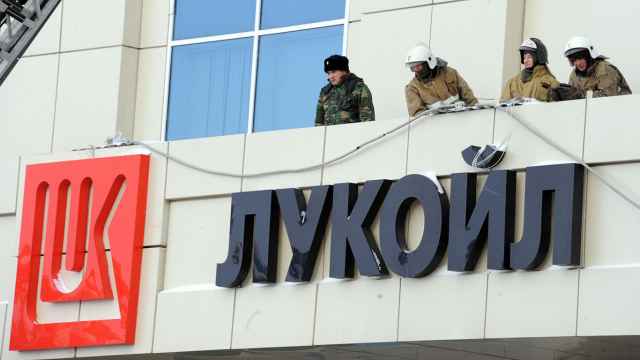Oleg Smolin, a State Duma deputy with the Communist Party, praised a law that entered into force Monday and requires companies to hire disabled people or face fines of up to 10,000 rubles ($330).
"We supported this legislation because it looks like a first step forward," Smolin, who is blind, told The Moscow Times.
The amendments, published on the Kremlin's website Monday, introduce fines for business owners who refuse to employ people with disabilities or fail to create a quota system that earmarks a certain percentage of jobs for them.
The legislation concerns companies with 100 or more employees and requires them to provide 2 to 4 percent of their jobs to people with disabilities. The fines for noncompliance range from 5,000 to 10,000 rubles.
Asked whether the fines are too small to make a difference, Smolin said the amount reflected a compromise between the government and organizations that work with disabled people.
He acknowledged, however, that nongovernmental organizations had sought stricter measures to encourage employment of the disabled. One of them, which was ultimately rejected, would have required companies to pay into a special fund to create workspaces for the disabled.
Federal legislation passed in 2004 requires companies with more than 30 employees to fill a certain percentage of their positions with disabled people, should qualified candidates with disabilities apply. The law was amended in 2005 to increase the worker threshold from 30 to 100.
The latest law introduces the fines. The decision to establish fines appears to be aimed at forcing companies to be more socially responsible, in a country where 3.5 million people with disabilities, or 84 percent of all disabled Russians capable of working, are unemployed, according to government figures.
But Vladimir Golovnyov, an official with the Kremlin-established office to defend investor rights, cautioned that the fines should not be used to pressure small businesses, including startups.
"We should apply those measures very carefully because bureaucrats who see things in a formal way might use it to put pressure on business," Golovnyov said.
He said business owners need to be socially responsible but at the same time they need to make a profit.
"So a consensus between those two things has to be found," he said.
Although some businesses are prepared to look for compromises toward more inclusive employment, government officials have not always welcomed them.
In the mid-2000s, Noda, a leading Russian company that provides software solutions for call centers, opened a call center with 2,500 visually impaired employees in cooperation with Moscow Mayor Yury Luzhkov. After Luzhkov was fired in 2010, City Hall under the new mayor, Sergei Sobyanin, declined to pursue the program further.
In 2011, the federal government promised to set aside 950 million rubles ($28.6 million) per year through 2014 for special businesses typically overseen by national organizations for the visually and hearing impaired and people with other disabilities.
Many of those businesses, however, make uncompetitive products that are not in demand in the market.
Contact the author at [email protected]
Related articles:
A Message from The Moscow Times:
Dear readers,
We are facing unprecedented challenges. Russia's Prosecutor General's Office has designated The Moscow Times as an "undesirable" organization, criminalizing our work and putting our staff at risk of prosecution. This follows our earlier unjust labeling as a "foreign agent."
These actions are direct attempts to silence independent journalism in Russia. The authorities claim our work "discredits the decisions of the Russian leadership." We see things differently: we strive to provide accurate, unbiased reporting on Russia.
We, the journalists of The Moscow Times, refuse to be silenced. But to continue our work, we need your help.
Your support, no matter how small, makes a world of difference. If you can, please support us monthly starting from just $2. It's quick to set up, and every contribution makes a significant impact.
By supporting The Moscow Times, you're defending open, independent journalism in the face of repression. Thank you for standing with us.
Remind me later.






